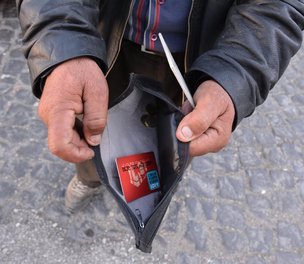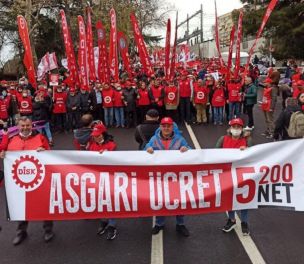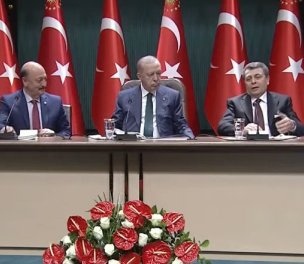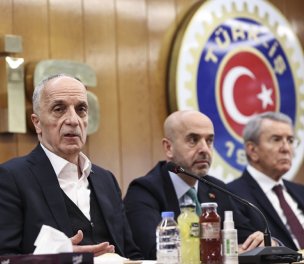Photo: AA
President Recep Tayyip Erdoğan today (December 22) announced Türkiye's minimum monthly wage for 2023 as 8,506 Turkish lira (455 US dollars), up by 54 percent compared to this year's wage.
The workers' representatives were not present at the press conference where Erdoğan was accompanied by the head of the confederation of an employers' union and the labor minister.
Head of the Confederation of Turkish Trade Unions (Türk İş), Ergün Atalay, did not attend the press conference after the union's demand of a 9,000-lira minimum wage was not accepted.
The determination and the announcement of the minimum wage drew criticism over incompliance with the regulations.
Arzu Çerkezoğlu, head of the Confederation of Progressive Trade Unions of Turkey (DİSK), issued a written statement, saying that the president "does not have the authority to determine the minimum wage."
"The minimum wage was determined, not by the Minimum Wage Determination Commission, but by the President and the employers union, adding yet another unlawfulness to many that we see in the last period," she said.
The minimum wage regulation
The Minimum Wage Regulation sets forth the Minimum Wage Determination Commission and the principles and procedures for determining the minimum wage. Accordingly, the minimum wage should be determined by the commission and announced by the its chairperson.
Today, there was no one from the commission at the conference where the wage was announced by Erdoğan, as it was in the past few years. However, commission members accompanied Erdoğan in the previous years.
While Minister of Labor Vedat Bilgin, and Özgür Burak Akkol, head of the Confederation of Employer's Unions (TİSK) were at the table, it was Sadettin Akyıl from the ministry and Akansel Koç from the TİSK who represented their institutions in the commission.
The Minimum Wage RegulationThe purpose of the regulation is to regulate the "principles to be followed during the determination of the minimum wage, the meeting and working methods of the Minimum Wage Determination Commission." (Article 1) The provisions of the Regulation cover "all sectors where workers are employed with a labor contract whether or not in the scope of the Labor Law." (Article 2) The minimum wage is defined in the Regulation as, "the wage to be paid to the workers for a normal working day which will be sufficient to meet the vital needs of the worker such as food, housing, clothing, health, transportation, and cultural activities." (Article 4/d) The second part of the Regulation is on the principles of determining the minimum wage. According to the principle of equality, "No discrimination can be made in the determination of the minimum wage based on language, race, color, gender, disability, political belief, philosophy, religious belief or religious sect or for any similar reason. (Article 5) On the determination of the minimum wage, the regulation says, "The Commission shall determine the minimum wage so as to cover all sectors. The wage is to be determined as the daily wage. (...) The third part sets the principles of the constitution, tasks, authorities, and responsibilities of the Commission. According to this part of the Regulation, the Commission shall be composed of: "The Commission meets with the invitation of the Ministry and works according to the agenda set by the Ministry. It meets with at least ten Commission members and decides with a simple majority. A member who disagrees with a decision can indicate the reason. In the case of equality of votes, the side that the chairperson votes for is regarded as the majority. Decisions taken by the Commission in each meeting are written down in the minute book and signed by the chairperson and the members. The decision of the Commission on minimum wage is final." (Article 8) The decisions taken are made public by the chairperson of the Commission. (Article 9) |




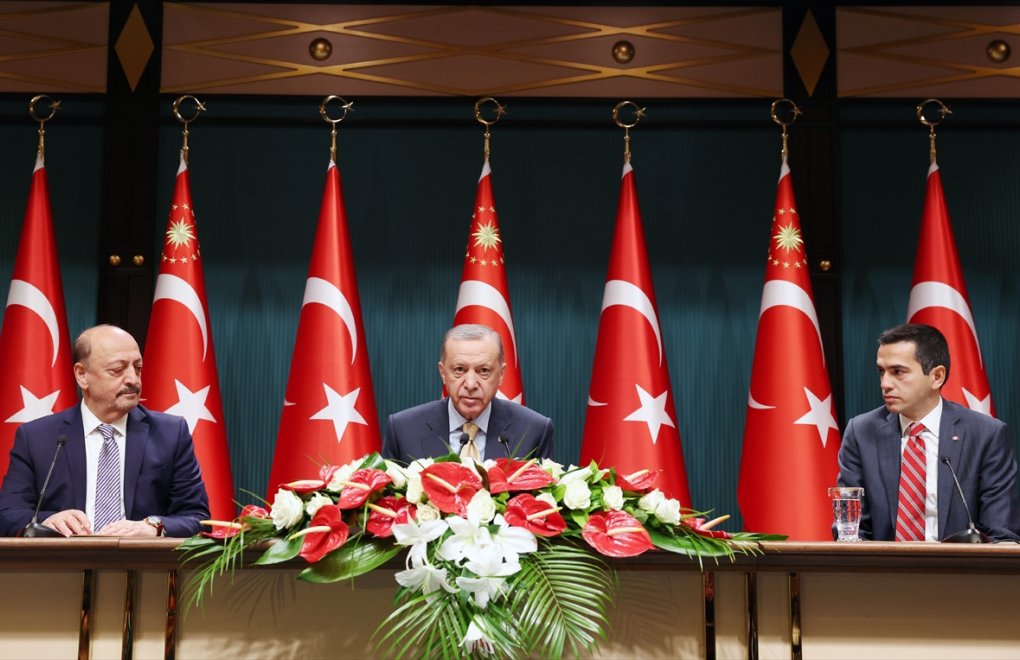
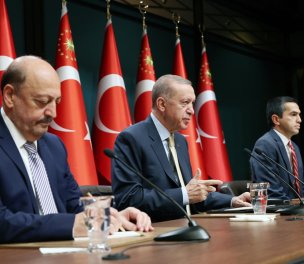
sa.jpg)

